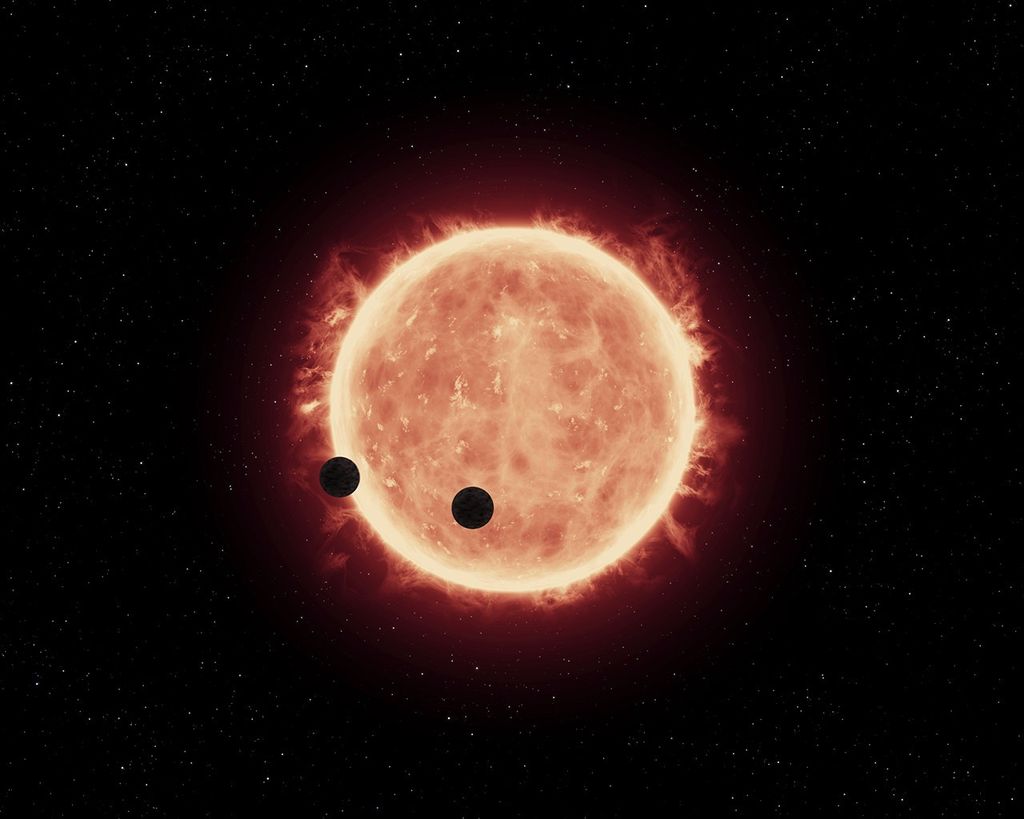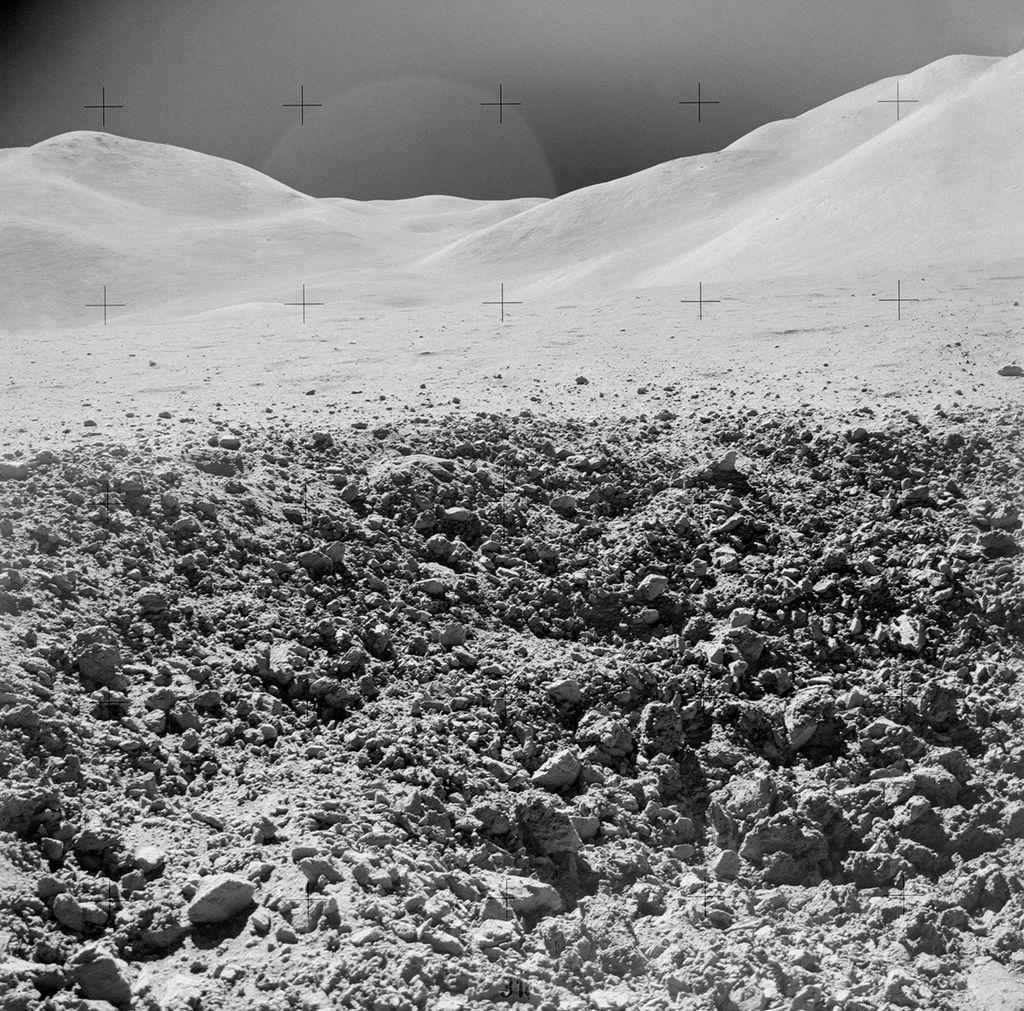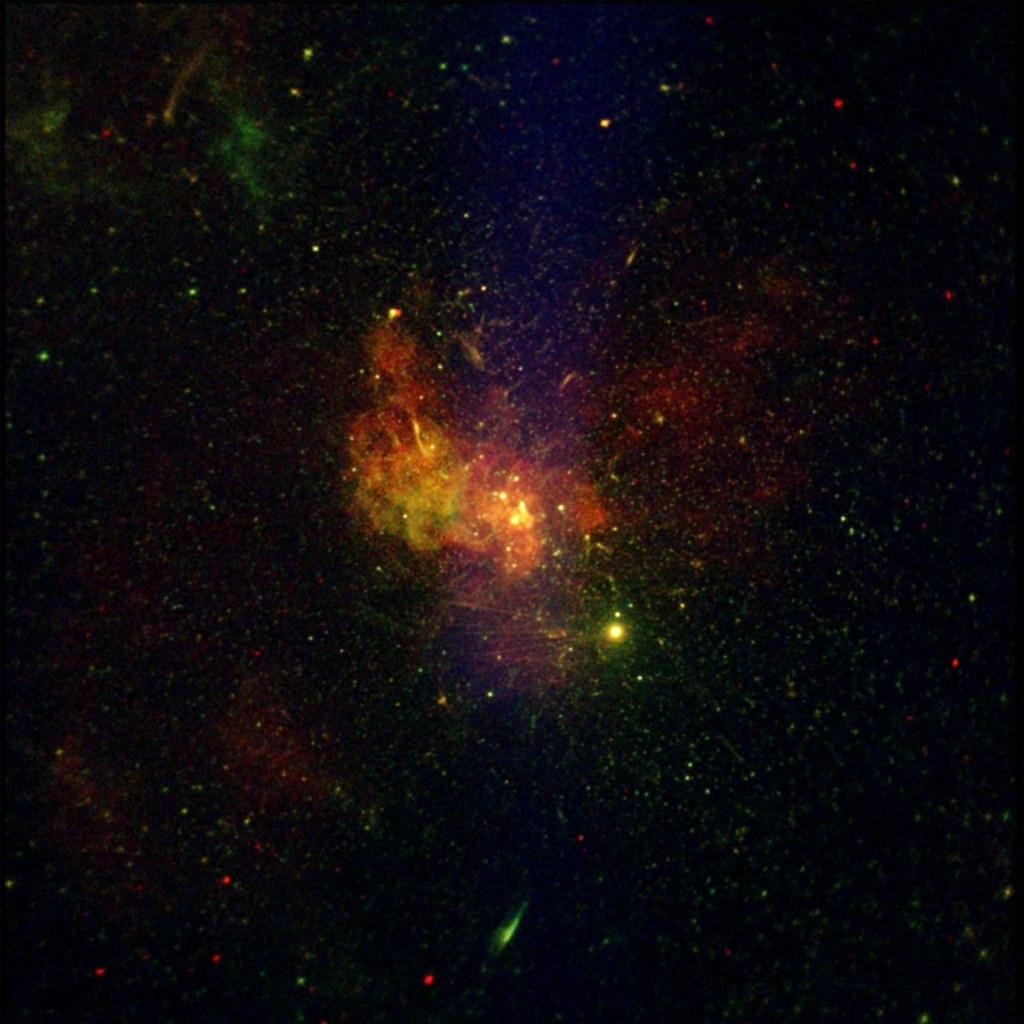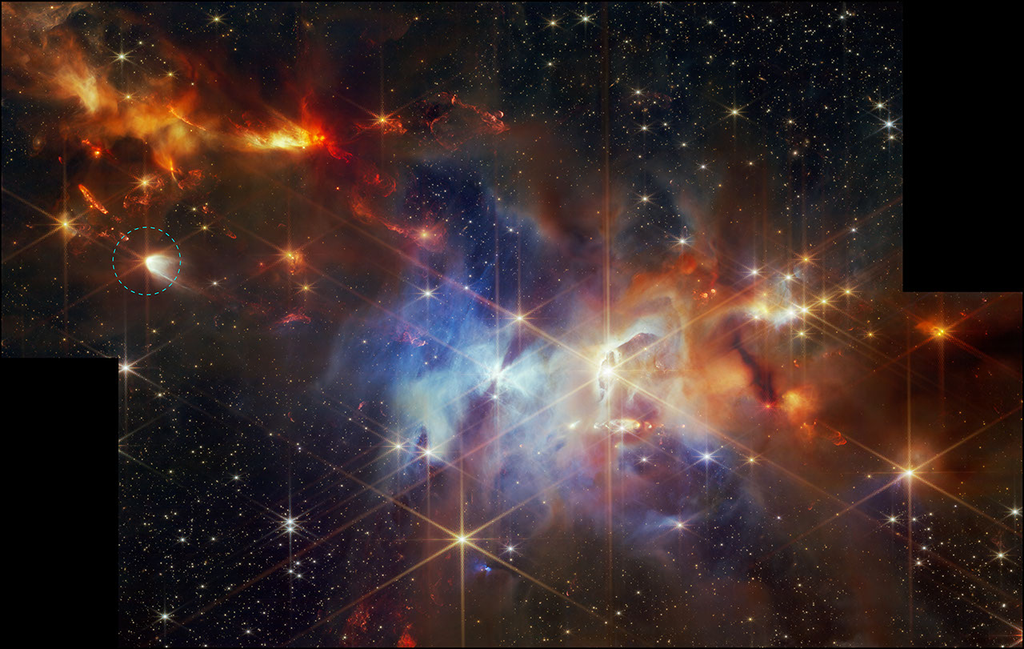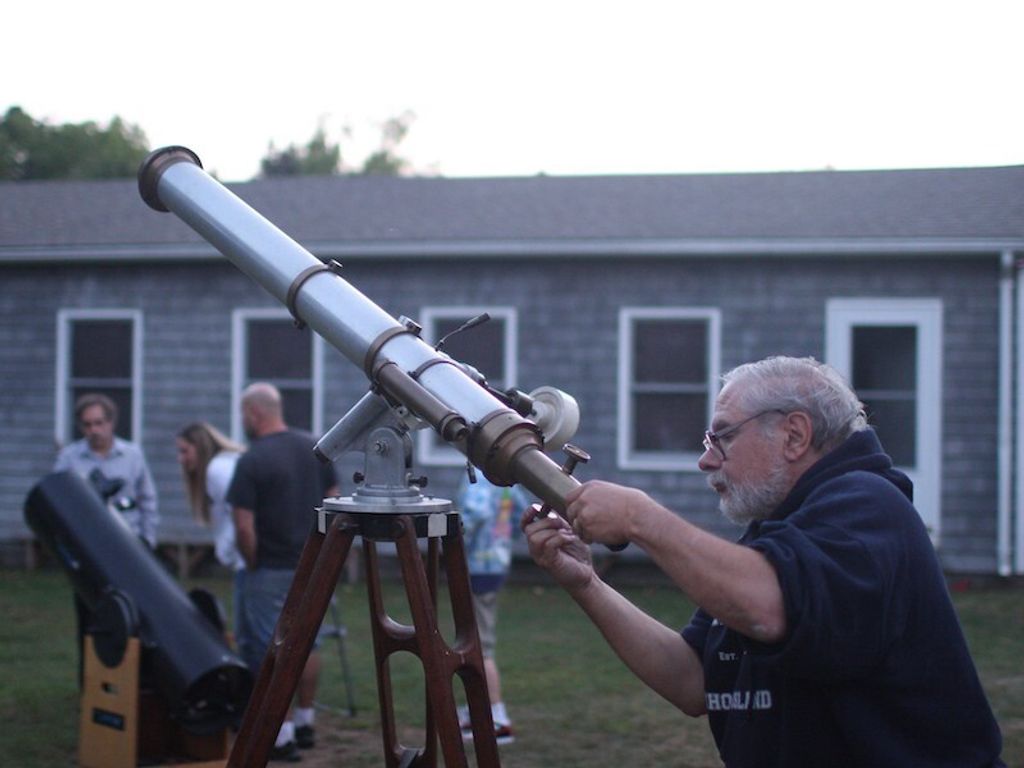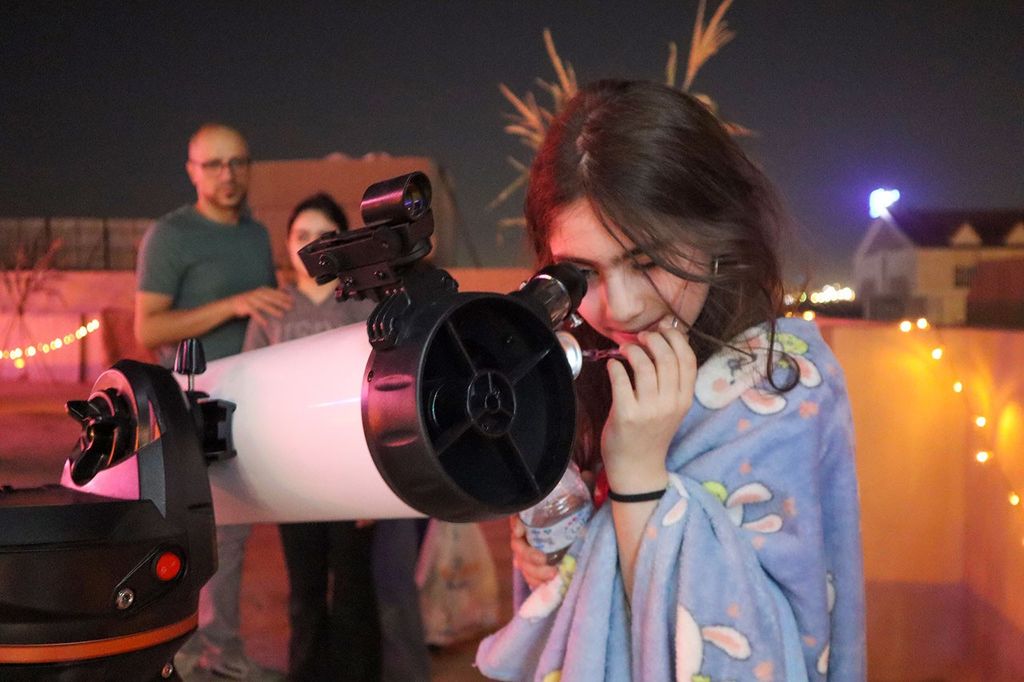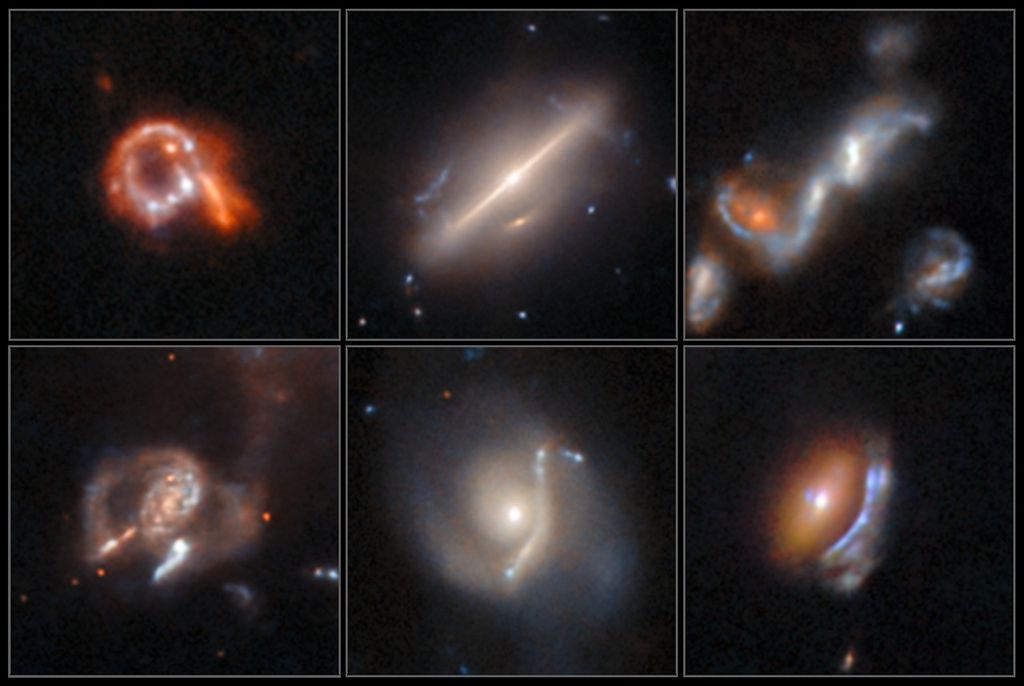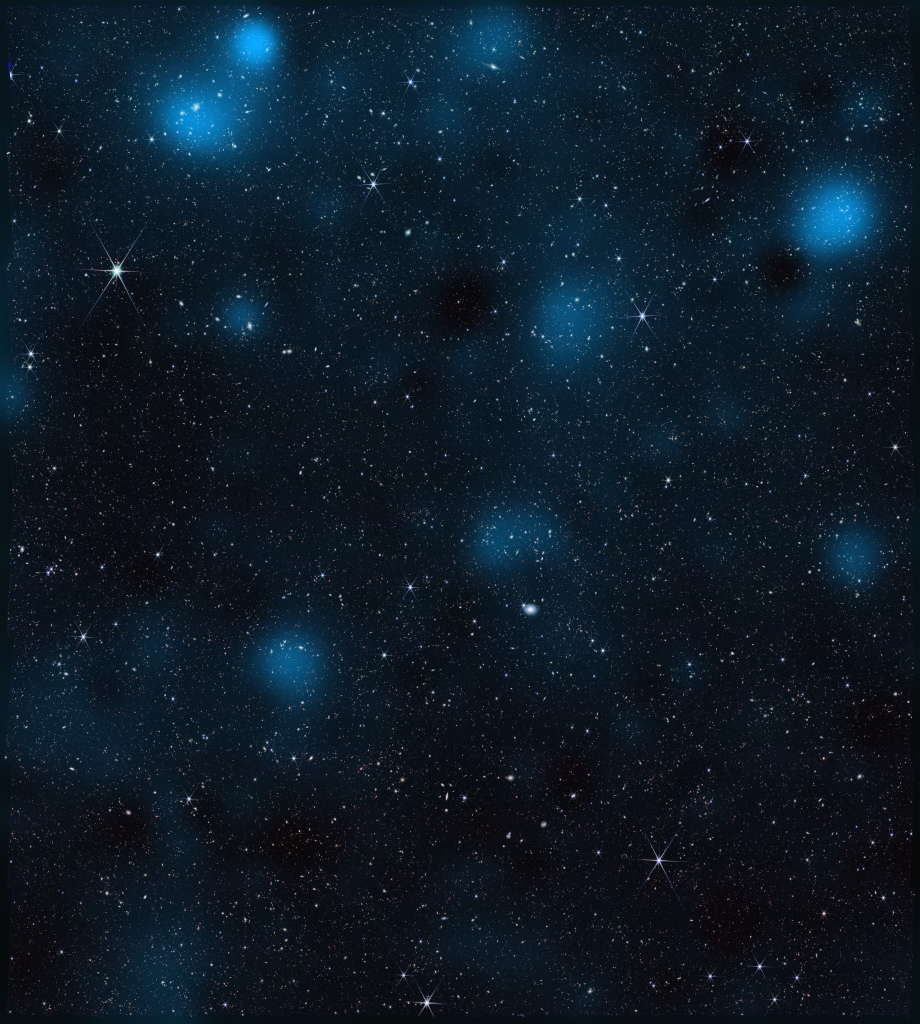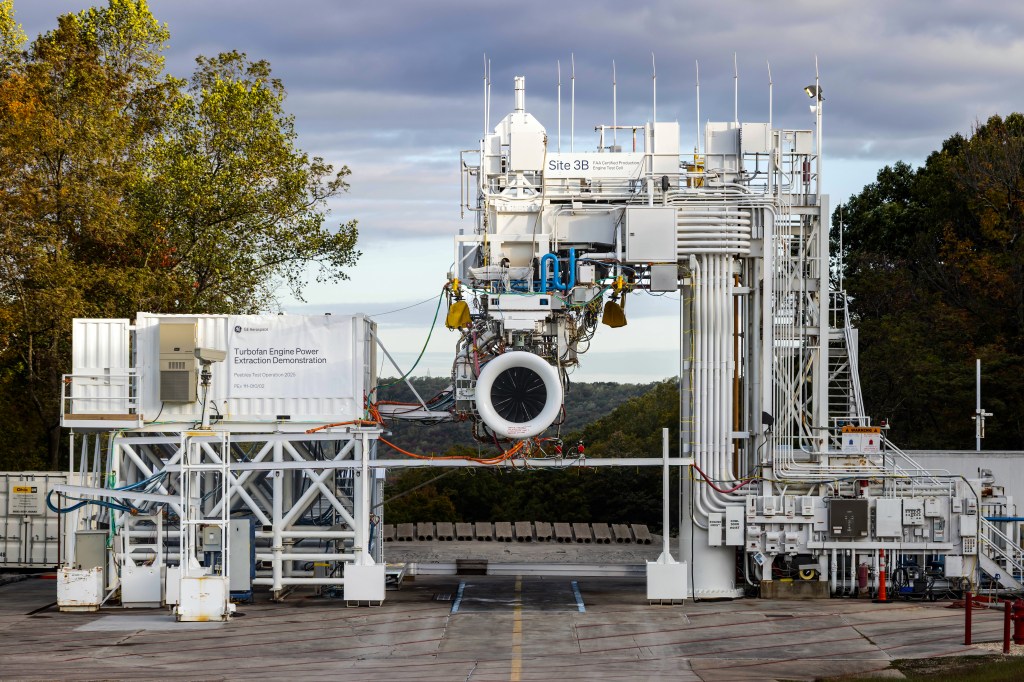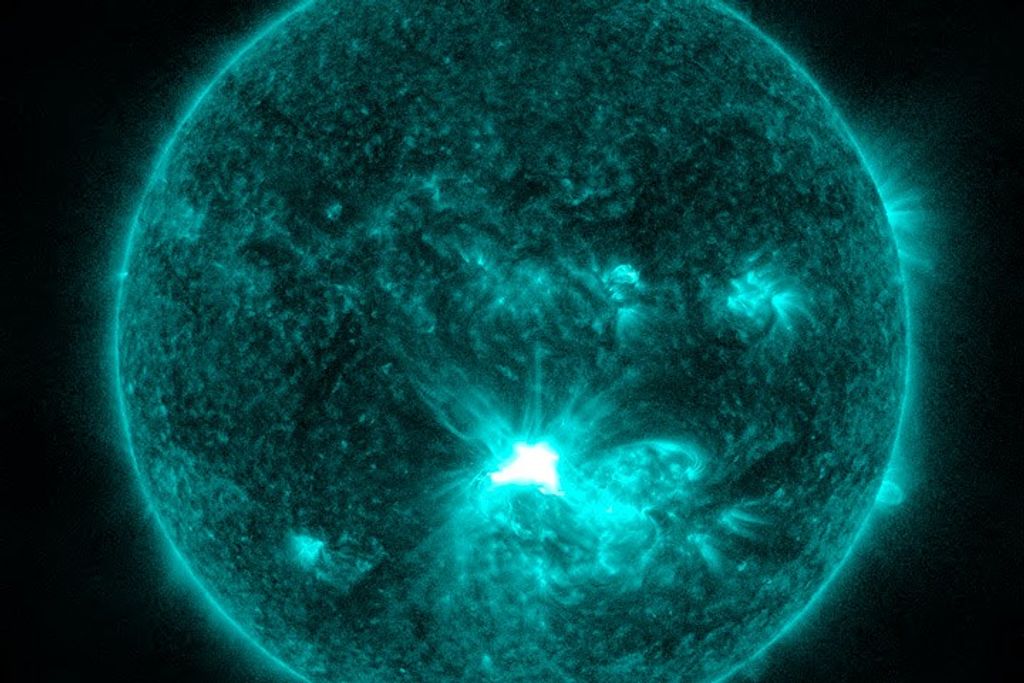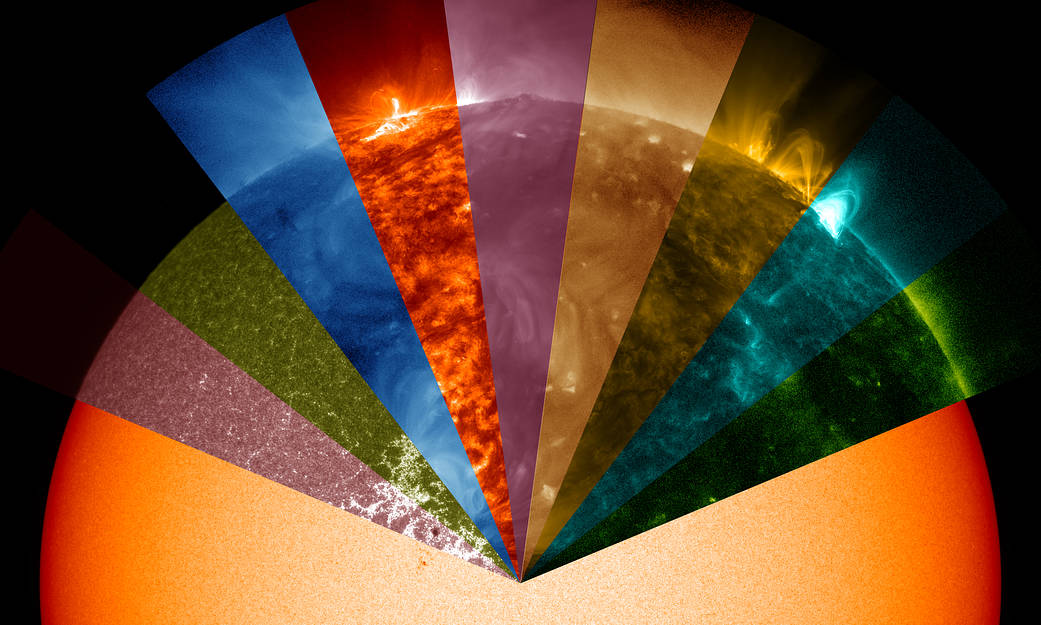This still image was taken from a new NASA movie of the sun based on data from NASA’s Solar Dynamics Observatory, or SDO, showing the wide range of wavelengths – invisible to the naked eye – that the telescope can view. SDO converts the wavelengths into an image humans can see, and the light is colorized into a rainbow of colors.
Yellow light of 5800 Angstroms, for example, generally emanates from material of about 10,000 degrees F (5700 degrees C), which represents the surface of the sun. Extreme ultraviolet light of 94 Angstroms, which is typically colorized in green in SDO images, comes from atoms that are about 11 million degrees F (6,300,000 degrees C) and is a good wavelength for looking at solar flares, which can reach such high temperatures. By examining pictures of the sun in a variety of wavelengths – as is done not only by SDO, but also by NASA’s Interface Region Imaging Spectrograph, NASA’s Solar Terrestrial Relations Observatory and the European Space Agency/NASA Solar and Heliospheric Observatory — scientists can track how particles and heat move through the sun’s atmosphere.
> Read more> Video: Jewel Box Sun
Image Credit: NASA Goddard Space Flight Center

